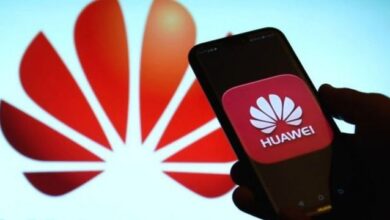Opinion| Has the Chinese yuan replaced the US dollar in the global market?

An important and major step was taken a few days ago on the path to a multipolar world. This is where the agreement signed by China and Brazil in 2019 to adopt their local currencies in trade between the two countries entered into force.
Brazil is the largest economy in the regions of Central and South America, and it is the first country in the Americas to dare to implement this agreement with China, the sworn enemy of the United States of America.
The agreement aims to enhance trade exchange between the two countries and reduce dependence on the US dollar in bilateral trade. The agreement is to use the Chinese yuan and the Brazilian real in trade operations between the two countries, instead of the US dollar.
This agreement is an important step in transforming the global monetary system, eliminating heavy dependence on the US dollar in international trade, and promoting the use of local currencies.
The agreement between China and Brazil to deal in local currencies can lead to an increase in trade exchange between the two countries, as Chinese and Brazilian companies can deal more effectively in each other’s local markets. The agreement could also provide opportunities to expand economic cooperation between China and Brazil in other areas such as investment, technology, and tourism.
It is important to note that this agreement is part of the general shift towards the use of local currencies in international trade, which represents an important shift in the global monetary system. This transformation is expected to increase in the future, with the trend toward improving economic and sovereign independence in global markets.
The shift from the US dollar to the Chinese yuan as the main international currency represents a major change in the global monetary system, and it could greatly affect the global economy. In the first place, shifting the global monetary system to more reliance on the Chinese yuan could increase interest in the Chinese economy and strengthen its position as one of the major economic powers in the world. With the increasing demand for the Chinese yuan, the demand for Chinese products and trade between China and other countries can increase.
On the other hand, shifting the global monetary system to dependence on the Chinese yuan may reduce dependence on the US dollar as the main currency in international trade, which could increase the shift away from the US dollar and weaken the economic and political role of the US in the world.
It is important to note that the transition to the Chinese yuan as a major international currency requires improving its financial and operational infrastructure and providing confidence in the Chinese banking and monetary system. China may face challenges in this regard, including improving transparency and improving trade relations with other countries.
In general, shifting the global monetary system to dependence on the Chinese yuan as the main international currency could have a significant impact on the global economy, and requires careful study and assessment of the challenges and potential impacts in the short and long term.
Yes, China is currently contributing to building a multipolar world with its large economy and diplomatic and cultural influence in the Asian region and around the world. China has experienced rapid economic growth over the past few decades and is now the second-largest economy in the world after the United States. China seeks to strengthen its role in the international system and enhance its cooperation with developing countries and emerging countries in the global economy. It is expected that China will continue to enhance its role at the global level in the future. If we follow the strategic change in its policy and the shift from a neutral role to a pivotal one in many international issues, and this is what we have seen through its diplomacy to improve relations between Iran and Saudi Arabia in a region that has been classified since the end of World War II as a region closed to US influence only.
We can add another step to the above, as India also announced that it will deal with 19 countries – including Egypt – in its local currency, the rupee, which is in line with the determination of the “ASEAN” group of countries to issue a unified currency to deal with each other in all its commercial transactions. This ASEAN group is an economic grouping of 10 countries in Southeast Asia that was established in 1967 to accelerate the pace of economic growth in Southeast Asia, in addition to establishing a free trade area among the member states, including Malaysia, Singapore, Indonesia, Thailand, the Sultanate of Brunei, the Philippines, Vietnam, and Cambodia
All sudden rapid moves confirm that the world is heading to disengage its trade from the dollar. This explains Egypt’s keen interest in increasing its reserves of gold and its quest to join the “BRICS” group, which will give it the advantage of dealing with the countries of the group in its unified currency away from the US dollar.
Dr. Hatem Sadek: Professor at Helwan University







